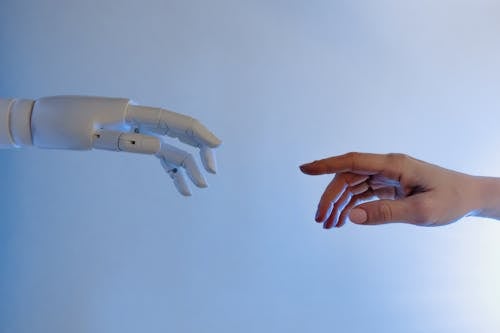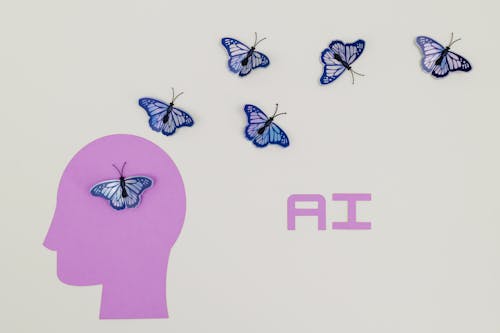As we step confidently into the digital era, one undeniable truth emerges: artificial intelligence (AI) is reshaping the landscape of writing. From chatbots crafting customer service responses to algorithms generating news articles, AI is revolutionizing language generation in unprecedented ways. In this piece, we’ll delve into the future of writing and how AI is altering our relationship with words, showcasing the remarkable power of technology and its impact on written communication.
Understanding Language Generation
Language generation is a potent application of AI, involving the automatic creation of written or spoken language. It leverages machine learning algorithms to produce text and speech resembling human language in style, tone, and structure. This application is transforming how we communicate and interact with technology, opening new avenues in marketing, customer service, content creation, and beyond.

At its core, language generation relies on two primary components: natural language processing (NLP) and deep learning. NLP, a branch of AI, focuses on comprehending human languages to analyze and process vast amounts of text data. Deep learning involves training neural networks to learn patterns from this data autonomously.
One significant advantage of AI-powered language generation is its capacity to produce extensive original content swiftly. While humans may take hours or days to craft comprehensive content, AI can accomplish it in seconds. This presents opportunities for businesses to enhance their online presence through frequent publications while minimizing time and cost spent on content creation.
Moreover, AI-based language generation systems continually evolve through machine learning iterations. As they absorb more data over time, they become smarter and more adept at generating high-quality text that mirrors human writing styles.
Another key benefit is the adaptability of AI-generated language across different languages. With advancements in NLP, these systems can understand various languages proficiently. This enables businesses to expand into global markets by swiftly producing localized content without the need for multilingual staff or freelancers.

However, like any emerging technology, AI-driven language generation raises concerns, such as the potential for biased or unethical content due to biased datasets used for training. Efforts are underway to develop AI systems capable of identifying and filtering out discriminatory or offensive language.
A Historical Perspective
The history of AI in language generation dates back several decades. Early developments focused on rule-based systems, limited to predefined sentences. In the 1980s, statistical methods in NLP allowed computers to analyze data and learn, though generated language often lacked coherence.
The late 2000s saw a breakthrough with deep learning, enabling neural networks to mimic human brain processes and produce text indistinguishable from human writing. Today, models like GPT-3 by OpenAI, with over 175 billion parameters, showcase the pinnacle of NLP achievement, capable of various tasks such as translation and summarization.

Current Applications
AI writing has permeated various industries:
- Automated Content Creation: AI tools generate written content on diverse topics, benefiting businesses in marketing, news, social media, and email campaigns.
- Language Translation: AI algorithms facilitate accurate language translation, aiding cross-cultural communication.
- Chatbots: AI-driven chatbots engage users conversationally, providing customer support akin to human representatives.
- Writing Assistance: AI-powered writing assistants help improve grammar, spelling, and style in word processing.
- Creative Writing: AI algorithms coupled with big data analysis techniques generate creative work like poems and short stories.
Advancements in AI Writing Technology
AI has transformed writing through:
- Natural Language Generation: Computer systems produce coherent sentences and paragraphs mimicking human writing.
- Deep Learning Models: Algorithms trained on vast datasets generate complex and nuanced texts.
- Automated Content Creation: AI tools streamline content creation for marketing and journalism, utilizing grammar checkers and plagiarism detectors.
Debates on Ethics and Creativity
The ethical debate surrounding AI writing involves concerns about ownership, plagiarism, and job security for human writers. Some argue AI writing offers benefits like unbiased content and efficiency, while critics question its impact on creativity and authenticity.

Impact on Writers and the Industry
AI streamlines the writing process, enhances writing quality, and opens new writing opportunities. However, concerns about job security and originality persist.
Future Possibilities
Future developments may include more sophisticated NLP algorithms, personalized content, and AI-assisted translation. AI could also aid writers with writer’s block and enhance accessibility and inclusivity.
AI is revolutionizing language generation, presenting both challenges and opportunities. Embracing these advancements while preserving individual voices and perspectives will shape the future of writing in exciting ways.












Discussion about this post